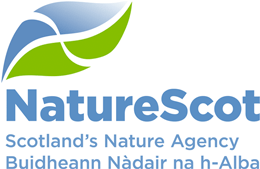31 July, 2014
Orkney goose management project enters third year
A project to manage geese populations in Orkney is set to enter its third year, Scottish Natural Heritage (SNH) has confirmed.
The Orkney greylag goose adaptive management pilot will allow local people to control the resident greylag geese population. Licensed shooting with experienced local guns takes place in August and September before migratory birds from Iceland arrive in October. This will keep the population down to reduce impact on farming while preserving the species’ conservation interest.
Geese taken as part of the pilot project will be recorded and numbers monitored in summer.
The aim is a sustainably managed goose population which generates income for local people. The pilot project last year saw, for the first time in Orkney, the sale of wild goose meat through licensed outlets. And the licensed sale of meat locally and online will continue this year from August to July 2015.
Resident greylag geese in Orkney have increased over the past 20 years. The goose count in August 2013 recorded 20,242 birds which represents a 5% decrease since the August 2012 count when 21,367 birds were recorded.
Wild goose meat is available only from licensed sellers in Orkney. The pilot project is being trialled in Scotland under the auspices of SNH and advised by the National Goose Management Review Group (NGMRG).
Paul Wheelhouse, Minister for the Environment and Climate Change, said: “This, the third year of the Orkney greylag goose pilot project, is to be welcomed, as the project provides a major role for Orkney farmers in the careful management of goose numbers.
“The Scottish Government is committed to supporting our rural communities, and we have listened to the concerns of farmers and land managers in Orkney about the effect that greylag geese, and, in particular, the resident population of the species, are having on crops and arable land.
“In response to those concerns, the project developed this sustainable solution which has widespread support in Orkney. The project also has the benefit of providing a boost to the local economy through the licensed sale locally and online of goose meat; a healthy and protein-rich food that would otherwise have been disposed of via landfill if the prohibition on the sale of such goose meat had remained in force.”
Gail Churchill, SNH’s Orkney operations manager, confirmed: “We too welcome the sale of wild goose meat in Orkney under licence once again this year. This pilot project is proven to sustainably reduce goose numbers while providing a boost for local shops and the Orkney economy.
“We undertook this work to respond to the concerns of local farmers and land managers. Last year 5,844 resident greylag geese were shot and the target for this year is 5,500. In succeeding years this number will reduce as the population decreases. The work will be undertaken by experienced local shooters following established best practice methods, and overseen by Scotland’s Rural College’s staff.
“This active management work will help us meet our nature conservation obligations by maintaining a sustainable and stable resident greylag goose population. It has the support of the British Association for Shooting and Conservation (BASC) who will be working closely with all of us involved in this new form of adaptive management control.”
In Orkney the project has been developed and managed in conjunction with the Local Goose Management Group (LGMG) which includes NFUS, SGRPID, Scotland’s Rural College (SRC) and local farmers.
ENDS
The National Goose Management Review Group (NGMRG) recommends each of the pilots are guided by the same three objectives of national goose policy which underpin existing goose schemes.
This will meet the UK’s nature conservation obligations for geese within the context of wider biodiversity objectives; minimise economic losses experienced by farmers and crofters as a result of the presence of geese, and maximise the value for money of public expenditure.
To see the terms and conditions attached to the general licence see SNH's web site
and http://www.snh.gov.uk/protecting-scotlands-nature/species-licensing/bird-licensing/
Licences will be restricted to Orkney, and tightly controlled. Specific licences will be issued to named hunters and retail premises for them to sell wild resident greylag goose meat. A general licence issued by SNH will allow restaurants, cafes, hotels, and other caterers to sell wild goose meat in prepared meals on Orkney.
Under normal circumstances the sale of wild goose meat is prohibited through section 6 of the Wildlife and Countryside Act 1981. Before taking the decision to allow the sale of wild greylag goose meat in Scotland, the Scottish Government consulted with the European Commission to ensure compliance with European legislation for the conservation of wild birds (the EU Wild Birds Directive).
Directive 2009/147/EC of the European Parliament and of the Council on the conservation of wild birds, commonly known as the Birds Directive, protects all wild birds, their nests, eggs and habitats within the European Community.
There are currently three greylag goose pilots in Scotland which enable local people to manage resident greylag goose populations; one in Orkney, one in the Uists and one in Coll and Tiree.
Contact information
- Name
- SNH Media
- snhmedia@snh.gov.uk
NatureScot is Scotland's nature agency. We work to enhance our natural environment in Scotland and inspire everyone to care more about it. Our priority is a nature-rich future for Scotland and an effective response to the climate emergency. For more information, visit our website at www.nature.scot or follow us on X at https://x.com/NatureScot
’S e NatureScot buidheann nàdair na h-Alba. Bidh sinn a’ neartachadh àrainneachd na h-Alba agus a’ brosnachadh dhaoine gu barrachd suim a chur ann an nàdar. Tha e mar phrìomhachas againn gum bi nàdar na h-Alba beairteach agus gun dèilig sinn gu h-èifeachdach le èiginn na gnàth-shìde. Tha an tuilleadh fiosrachaidh aig www.nature.scot no air X aig https://x.com/NatureScot
